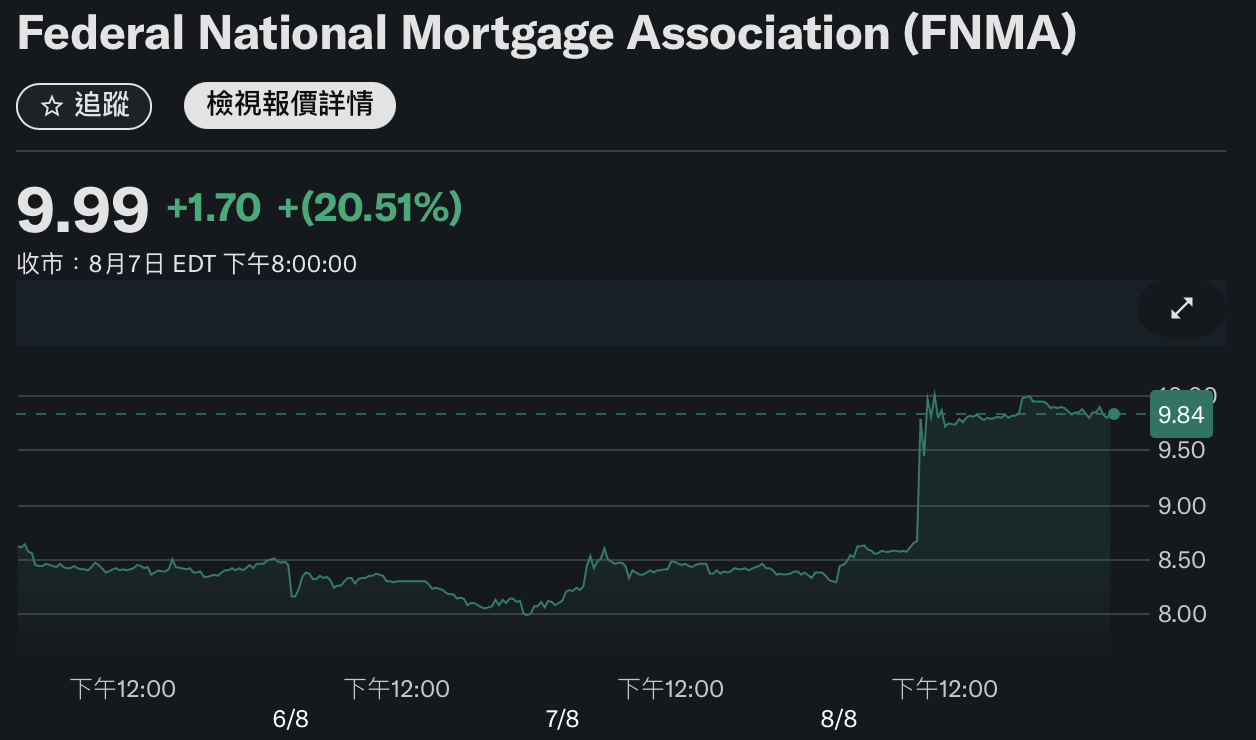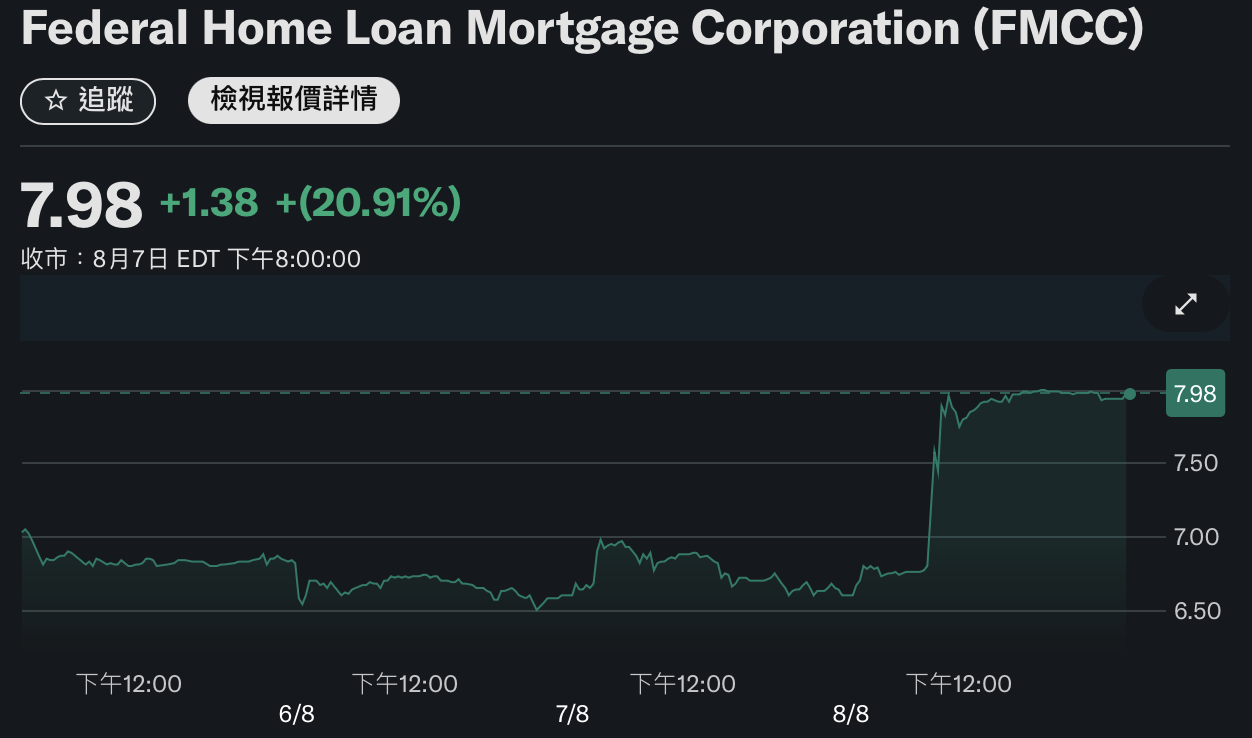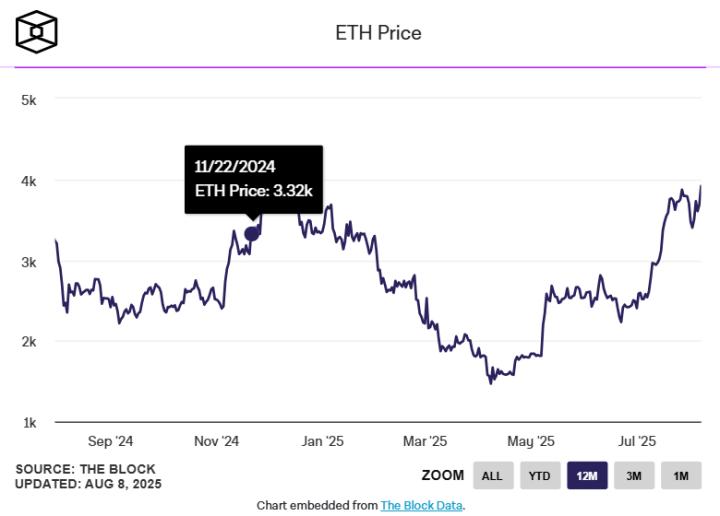After 16 years of federal receivership, Fannie Mae and Freddie Mac are heading towards going public under the Trump administration.
News reports indicate that the stock prices of both companies soared 22% on Friday, marking the largest single-day increase in over two months.


Super IPO: Government Exit and Market Return
According to the Wall Street Journal, White House sources revealed that the Trump team aims to sell 10-15% of their equity through an initial public offering, raising $30 billion, making it one of the largest IPOs in history. Since the 2008 financial crisis, both companies have relied on implicit government guarantees. Trump publicly promised in May:
Government guarantees will continue, and I will retain supervisory rights.
It is still undecided whether Fannie Mae and Freddie Mac will merge for listing or proceed separately. Market participants are concerned about whether the listing can simultaneously reduce the government's role while maintaining sufficient oversight to maintain investor confidence.
Bitcoin Collateral?
Outside the public market plan, FHFA Director William Pulte announced in July instructions for both institutions to explore incorporating cryptocurrencies like Bitcoin into mortgage assessments without first converting to US dollars, effectively placing crypto assets on par with stocks and bonds, and opening a new financing channel for young demographics holding digital assets.
However, Democratic senators and consumer organizations warn that cryptocurrency's high volatility, hacking risks, and insufficient liquidity could compromise mortgage security. In their letter to Pulte, they directly state that the new policy might endanger housing market stability.
Privatization brings more market-oriented products and private capital, while crypto collateral unlocks new wealth sources for specific buyers. Can Trump balance fiscal requirements, market efficiency, and financial stability in mortgage reform? The privatization of mortgage institutions inherently demands higher mortgage rates, and its attractiveness to borrowers remains uncertain in America's increasingly cold housing market.






